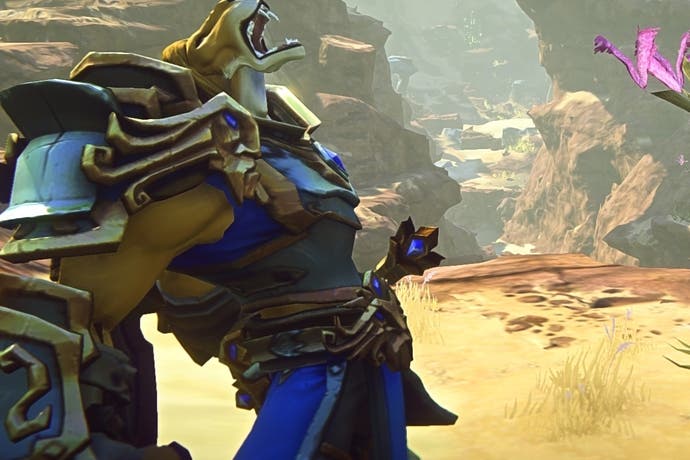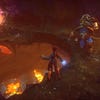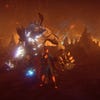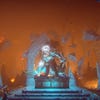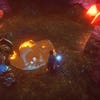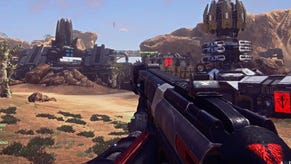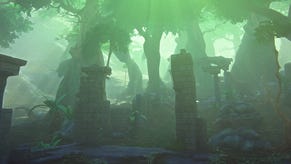EverQuest Next a PC-orientated launch
Will there be a PlayStation 4 version?
The EverQuest Next development team may be focused entirely on the PC launch platform at present, but the ambitious MMO may eventually be released for the PlayStation 4, according to David Georgeson, producer for Sony Online Entertainment.
"We're very serious about this being a PC-orientated launch," Georgeson said at the SOE Live event in Las Vegas.
"Now, you're dumb not to explore other options with a business of this type, but we're very serious about developing for the PC. You know the company knows a lot about the PlayStation 4 - look at DC Universe Online and Planetside 2 - so we have a lot of people becoming extraordinarily knowledgeable with that box. We're not adverse to the idea, but we're not going down that path yet."
Georgeson's comments came alongside EverQuest Next's first in-depth reveal. Built using voxel technology, the new EverQuest MMO offers up an unusual amount of freedom as players destroy environments and create permanent structures using the social Rallying Call feature.
So, how exactly will the servers work in comparison with traditional MMOs, and how will the team cope with quieter realms?
"Every world will be unique from the others in that players will be advancing the story in different ways at different times," Georgeson said. "And so, obviously, different worlds will be different to other ones.
"A lot of players will stick with their current community and friends, hang out that way and make it work. Some will want to flip from server to server, and we intend to make that a lot easier than it has been in the past - although we're not committed to details on that yet.
"We want to make it really easy for players to move back and forth between the worlds so they can experiment and see different things. For instance, if you roll up a new world, it might start all the way back at the beginning of the storyline.
"One other thing to mention is that Rallying Calls are very forgiving with regards to population. If half your server population is not interested in Rallying Calls, you'll still move apace."
"You're dumb not to explore other options with a business of this type, but we're very serious about developing for the PC."
David Georgeson, producer for Sony Online Entertainment
As for giving the world a sense of size and grandeur, Georgeson is confident that loading times will be kept to a minimum, with zones bleeding naturally into one another and immersion-breaking loading screens restricted to switches between continents.
"The 'loading - please wait' days will hopefully be mostly over," he said. "We'll occasionally use an instance here and there, just because we want to do something really special. In general though, when you wander through the world, you don't encounter those walls."
Within the world of EverQuest Next, players will be able to explore underground, and these new exploration points may even be triggered by player spell-casting during combat.
But what if you want to remain above ground and finish off a current objective, rather than be sent plummeting into a whole new area?
"But it's an adventure!" Georgeson countered. "It's one of those things where you'll be able to tell. There's a crack you can look down where they fall down. The thin areas will be identifiable. There'll be crevasses you can go, 'Cool, I can see way down there,' or you can jump or climb over or go into those places."
"The idea is that while everything can be destructible, it doesn't mean we're going to let everything be destructible."
senior producer Terry Michaels
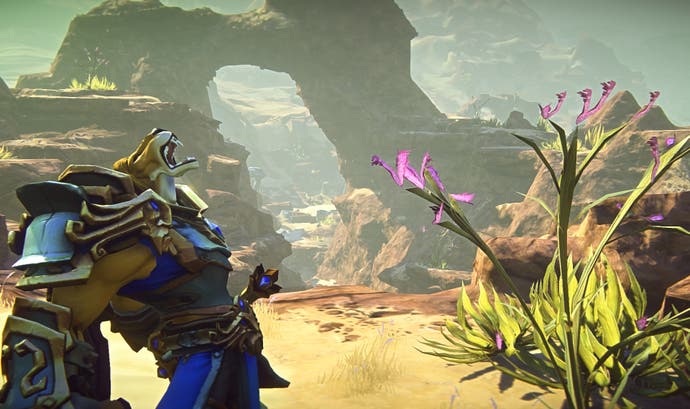
Scenery destroyed by players will be restored over time, but there remains concern about the potential to be able to grief other players by sending them plummeting into the depths below. There's also the problem of high level players interfering with new players learning the ropes.
Senior producer Terry Michaels explained how players will be protected, both in the MMO itself and in EverQuest Next Landmark, the Minecraft-inspired exploration and crafting companion game.
"The idea is that while everything can be destructible, it doesn't mean we're going to let everything be destructible," he said.
"We're going to use permission systems and tools to make sure the game is enjoyable for everyone who's playing it. We probably wouldn't let someone come in and destroy the newbie area, that's a more protected area. But maybe NPCs, for instance, can destroy part of that area, because it's part of the content going on in there.
"Without a doubt there are lots of griefing opportunities we haven't seen in this kind of game before. There's visual griefing in Landmark, where the idea of creativity is so important. People could actually try to impede other people's ability to see your stuff. We have to think about these things and tackle these things that are unique to our game. We did it to EverQuest and the things people could do there, and we'll do it again in EverQuest Next and make sure players have an enjoyable experience."
And how much space will each person have to play with in Landmark?
"We're talking about plenty of space," Michaels explained. "Based on what you do in the game, you have the opportunities to get larger and larger areas. We want people who create the amazing things you see in other games, to be able to come to Landmark and create those things there if they want too. That means things the size of cities, or in some cases, I'm sure you've seen things that are continent size. There are going to be opportunities for people to participate in a way that they want to participate."
EverQuest Next is the studio's third attempt at creating a sequel to EverQuest 2, with the two previous projects being abandoned during development. Georgeson was keen to stress that the ambitious content shown at this year's SEO Live event represented more than mere proofs of concept, or technical demonstrations. Rather, the systems of exploration, destruction, and creativity are all working functions within the game right now.
"We definitely had to R&D all of the voxel stuff, as well as the AI stuff, before we would even allow ourselves to commit to the project," he said. "We did all that before we started working on the other stuff. As you can see, we have the combat and stuff in the games. It's not tuned, it's not exactly where we want it, but it's all working and functional."
This article was based on a press trip to Las Vegas. SOE paid for travel and accommodation.
